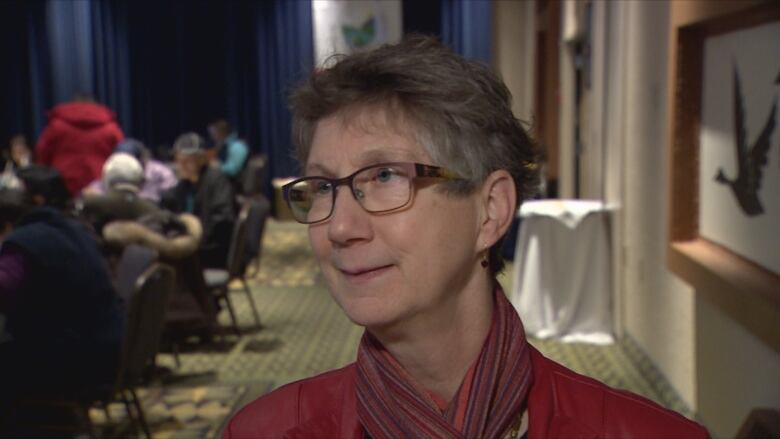N.W.T. medical travel policy too strict, says deputy minister
Debbie Delancey says she hopes to have new policy in place by end of year

The Government of the Northwest Territories' deputy minister of health and social services says the territory's rules about non-medical escorts are outdated and too strict.
The current policy, based on one written in the 1980s, only gives patients who have to leave the territory to receive treatment a non-medical travel companion in very specific circumstances, such as when the patient is a minor, has a disability, or requires a translator. Many people who don't meet the criteria are often left with facing major surgery or a serious diagnosis on their own.
"This is one of the biggest concerns we hear about our system," said deputy ministerDebbie DeLancey. "Medical travel is an expensive part of our system... it's a program that is always in deficit, and we want to make sure that people have an escort when they need one. But we also have to be mindful that we can't pay for an escort for everyone."
Requests for non-medical escorts currently come from community health providers, and are reviewed and approved by a board at Stanton Territorial Hospital. Delancey says practitioners should be the ones approving travel.
MableBohnet, who works in Behchoko as a medical travel clerk, spoke about the issue at a Dene Nation health symposium in Yellowknife yesterday, outlining the effects the policy has on local patients.
"Patients right now are missing appointments, because they don't want to travel on their own," said Bohnet. "Especially patients who have illnesses, and don't want to travel by themselves."
Several people spoke at the symposium, telling stories of people who shouldn't have travelled alone to medical appointments.The department of health has hired a consulting group to record those concerns, and speak with communities to gather their thoughts and suggestions.
"We have a commitment in our strategic plan to modernize the entire medical travel policy," said Delancey, "and the non-medical escorts piecerose to the top about what needs the most attention, fastest."
Delancey said she hopes to have a new, more flexible policy written by the end of this year.












_(720p).jpg)


 OFFICIAL HD MUSIC VIDEO.jpg)
.jpg)



























































































